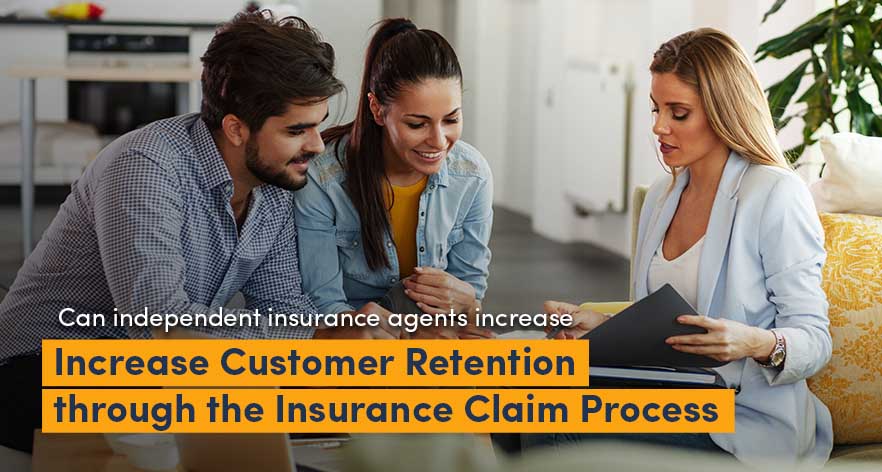A Complete Guide To Gap Insurance Cost And Everything Else You Need To Know

A Complete Guide To Gap Insurance Cost And Everything Else You Need To Know
TLTR: This is a comprehensive guide to gap insurance including gap insurance cost. It covers why you may need gap insurance and how it compares to other car insurance policies. This blog also answers most of the frequently asked questions about gap insurance.
According to The Wandering RV, there are about six million car crashes every year in the U.S. On average, that would come to about 16,000 accidents every day.
In a lot of these crashes, cars end up being totaled or nearly so, depending on the severity of the accident. And while being involved in a serious accident can be scary indeed, that’s often nothing compared to the horror caused by the financial dent it can put in your bank account.
According to The Motley Fool, Americans spend about $2,000 on car repairs on a yearly average. While sometimes the repair costs are understandable and affordable, in some cases, having a source of extra financial aid would be more than a little helpful.
That’s what regular old car insurance is for, right? True, but there’s a particular type of policy that can pay off much more handsomely. It’s called gap insurance.
In this blog
What is Gap Insurance?
How Much Does Gap Insurance Cost?
Is Gap Insurance Worth It?
When Does Gap Insurance Not Pay?
Where Can I Buy Gap Insurance?
How Does Gap Insurance Compare to Other Car Insurance Policies?
In Conclusion
FAQ
What is Gap Insurance?
The value of your car begins dropping the moment you buy it and drive it off the lot. In the event that you total or seriously damage your car, guaranteed auto protection, or gap insurance, covers the gap between the vehicle’s current value and the amount you still owe on it. Gap insurance takes the original value of your car into account, not just its current cash value.
According to the Insurance Information Institute, most cars depreciate at the rate of 20% in the first year following their purchase. Let’s say you purchased the latest model Toyota Corolla for $20,000. After a year, the car will have depreciated to $16,000. If your car is totaled in an accident in that period and you have gap insurance, rather than getting just the current cash value of the car, you’ll get its original worth of $20,000.
How Much Does Gap Insurance Cost?
According to Investopedia, the average gap insurance policy cost can range between $500 to $700 annually. NerdWallet, on the other hand, argues that gap insurance should cost you as little as $20 to $40 a year.
Why are these two price ranges so different? If you get a gap insurance policy added to your overall coverage, it’s likely to cost you less. Whereas gap insurance often costs you more if you purchase it as a separate policy.
Additionally, the cost of your premiums may be increased if you have to pay off a loan or the lease amount for your car.
Gap insurance cost depends on many factors. The model number of your car, its brand, the materials used in making it, and the dealer are thoroughly considered before determining the price.
Agency Height · Gap Insurance Secure Your Vehicle
More factors that determine the cost of gap insurance include:
Homeownership
DUI charges/convictions
Age
Gender
The state you live in
Driving history
Credit score
Is Gap Insurance Worth It?
Very often, yes, depending on your particular circumstances.
Here’s a list of ideal scenarios for obtaining gap insurance:
Your down payment for your car is less than 20% of the total sum.
You’re considering adding your outstanding car loan to a new loan sum.
Your car loan is for a 60-month period.
You’re planning to purchase a budget-friendly car. (Less expensive cars tend to lose their value at a faster rate.)
Having gap insurance would allow you to easily manage your loan payments in case of any serious damage to the vehicle. If you’re likely to get more value from the policy in comparison to the premium cost, the policy is worth it.


When Does Gap Insurance Not Pay?
Although gap insurance may seem like an excellent umbrella insurance for your car, its purpose is pretty specific.
Typically, gap insurance doesn’t cover:
Paying off your car loan in case of unemployment
Paying off the loan in case of disability
Reimbursement in cases of minor accidents
Rental cars
Where Can I Buy Gap Insurance?
Now that you have a clearer idea about the policy, let’s take a look at how gap insurance companies work. These are the places where you can find gap insurance at a cost that’s reasonable:
Your current auto insurer
An insurance company that specializes in gap insurance
Your lender (you can include the coverage costs in the loan payments you make)
The dealer you got the car from
While there do seem to be many options for a gap insurance provider, we recommend getting the policy from a reliable insurance company. A few good examples are:
American Family
USAA
Travelers
Safeco
Nationwide Insurance
Liberty Mutual
Auto-Owners Insurance
Note: USAA generally only caters to the military, veterans, and their families.

How Does Gap Insurance Compare to Other Car Insurance Policies?
Whatever car insurance policy you get, you are likely to have to go through a tedious auto insurance claim process. However, understanding the difference between policies and how they compare to gap insurance will help you better understand what policies best meet your needs.
Liability Insurance
Unlike gap insurance, in order to be a driver, you must have general liability insurance. It’s mandatory in most states. Liability insurance mainly covers the damage you may have caused to third parties. It often saves you money in situations where you are legally bound to pay for the other party’s loss.
Liability Insurance Cost (Annual Average)
$600-$800
Gap Insurance Cost (Annual Average)
$500-$700
Collision Insurance
Collision insurance specifically addresses accidents that involve colliding with another vehicle. This is often used as an additional policy in general car insurance coverage. However, unlike gap insurance, this policy will only pay for the current market value of your car.
Collision Insurance Cost (Annual Average)
$250-$400
Gap Insurance Cost (Annual Average)
$500-$700
Gap Insurance Guide from MayaFontenot
Personal Injury Protection (PIP) Insurance
As the name suggests, the policy helps you cover medical bills in case of bodily injury. The terms and conditions can vary. The policy will often cover up to 80% of expenses. A gap insurance policy and personal injury insurance policy are generally bundled together in the same coverage.
PIP Insurance Cost (Monthly Average)
$50-$200
(costs depends largely on age and medical history)
Gap Insurance Cost (Monthly Average)
$30-$60
Commercial Car Insurance
Commerical auto insurance or taxi insurance are appropriate for people who make their livelihood through their vehicles, or use them as part of their business. It covers accidents that may happen while using the vehicle while on business or for business purposes. A standard business owners policy can often include this type of coverage as well.
Gap insurance is generally recommended for inclusion in commercial car policies.
Commercial Car Insurance Cost (Monthly Average)
$135-$150
GAP Insurance Cost (Monthly Average)
$30-$60
Classic Car Insurance
Classic car insurance is the opposite of gap insurance. While your standard affordable sedan might lose up to 60% of its original price in the first five years, a classic car only increases its market value as the years go by, assuming it’s kept in good condition. Anyone who has a classic car insurance policy doesn’t require a gap insurance policy as it simply doesn’t carry any real benefit for them.
Classic Car Insurance Cost (Annual Average)
$200-$600
(can go over $1000 if your car is of higher value)
Gap Insurance Cost (Annual Average)
$500-$700


In Conclusion
Gap insurance is especially suited for more expensive cars, such as a Tesla or a Lexus. It also makes sense for anyone who might have trouble paying their auto loan or lease in accidental events, such as the car being stolen or totaled.
According to Lending Tree, Americans have nearly $1.4 trillion in auto loan debt. That amount makes up about 5% of the total consumer debt in America. While gap insurance may seem unnecessary, having the coverage can prove invaluable in a dire financial situation.
Are you having trouble figuring out gap insurance cost or how to buy it? Get in touch with a local insurance agent today!
FAQs
By now, it seems evident that gap insurance is necessary. Here are some frequently asked questions about gap insurance:
Is Gap Insurance Worth It for Used Cars?
Having a gap insurance policy included on a used car is rare but not unheard of. You can and should get it if you have a long-term loan on your vehicle. The policy can cover up to 25% actual cash value of your car, which will be helpful in the event of total loss.
Can You Get a Refund on Gap Insurance?
Yes, gap insurance can be refunded. If you cancel the insurance contract within 30 days of the initial purchase, you can get a full refund. However, many gap insurance companies may charge you a small cancelation fee.
Should You Get Gap Insurance for a Lease?
Getting the policy for a car lease is not mandatory. However, if you do end up getting a gap insurance policy when leasing a car, your premium will be included in the monthly/annual payment you make for the car. Also, in this situation, your lender will be overlooking your coverage.
Are there Alternatives to Gap Insurance?
Yes. There are some alternatives that you can consider instead of getting a gap insurance policy. These are:
Loan/lease payoff
New car replacement
Better car replacement
How To File Gap Insurance Claim?
If your car has been totaled in an accident, you should contact your gap insurance provider as soon as possible. You have a 30-day window to make your claim. After making the initial statement, your claim process will be like any other insurance claim process.
Note: Filling an insurance claim is similar regardless of the insurance policy you are trying to get claim for.
How Can You Reduce the Premium Cost for Gap Insurance?
Like mentioned in the blog, many factors influence gap insurance cost. However, here are some things you can do to reduce the cost:
Increase your deductible
Buy an insurance friendly car
Consider taking a defensive driving course
Compare quotes between insurance companies
Invest in bundle insurance
Become a better driver
Have a better credit score
Is Gap Insurance Only for Cars?
No, gap insurance can be bought for all the types of vehicles that may require it. Although gap insurance is more popular for cars, you can buy it for an RV and even a motorcycle.
We understand that you still might have questions; feel free to leave them in the comments down below.


Related Articles

3 Simple Ways to Leverage Networking to Generate Leads for Insurance in 2021

How to Become an Independent Insurance Agent
A Cheat Sheet

Insurance Claim Process
Helping Clients is The Best Way to Retain Customers and Gain Referrals
The post A Complete Guide To Gap Insurance Cost And Everything Else You Need To Know appeared first on Agency Height.





